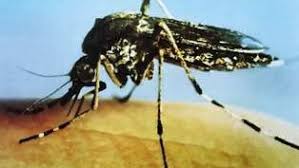Mosquito-borne viruses are a serious public health concern, and New Hampshire must take proactive steps to prevent and control the spread of these diseases. In a recent opinion piece published by Seacoast Online, the need for more robust efforts to combat mosquito-borne illnesses was highlighted. This article will delve deeper into the issue and explore strategies that New Hampshire can implement to protect its residents from these potentially deadly viruses.
One of the main points raised in the opinion piece is the importance of increasing surveillance and control measures for mosquitoes in New Hampshire. Mosquitoes are known carriers of diseases such as West Nile virus and Eastern equine encephalitis (EEE), both of which can cause severe illness and even death in humans. By implementing more comprehensive surveillance programs, state and local authorities can better understand mosquito populations, monitor disease prevalence, and target areas where mosquitoes are most prevalent.
In addition to surveillance, effective mosquito control measures are essential for preventing the spread of mosquito-borne viruses. This can include larval control programs to target mosquito breeding sites, adult mosquito control through pesticide spraying, and public education campaigns to raise awareness about the importance of personal protection measures such as using insect repellent and wearing long sleeves and pants when outdoors.
Another key aspect of combating mosquito-borne illnesses is to invest in research and education. By supporting research into new control methods and technologies, as well as educating the public about the risks associated with mosquito-borne illnesses, New Hampshire can empower its residents to take proactive steps to protect themselves and their communities.
Furthermore, collaboration between different stakeholders is crucial for a comprehensive approach to mosquito-borne disease prevention. This can include partnerships between state and local health departments, mosquito control districts, universities, and community organizations to coordinate surveillance and control efforts, share information, and develop effective strategies for reducing mosquito populations and minimizing the risk of disease transmission.
Overall, addressing the threat of mosquito-borne viruses requires a multi-faceted approach that combines surveillance, control, research, education, and collaboration. By prioritizing these efforts and investing resources into mosquito control programs, New Hampshire can better protect its residents from the risks posed by mosquito-borne illnesses. It is essential for policymakers, public health officials, and residents alike to work together to enhance mosquito control efforts and safeguard public health in the Granite State.

